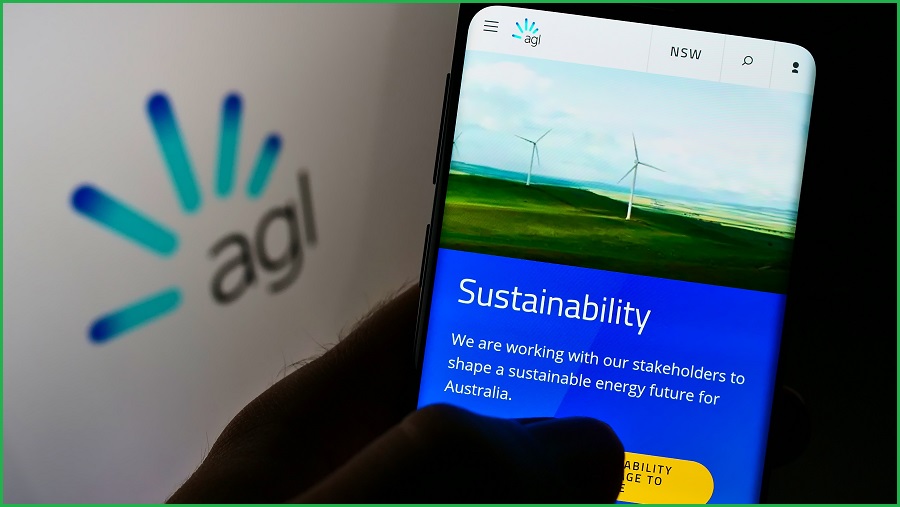AGL Energy has canned its planned demerger, dumped its CEO and re-shuffled its board following a high-profile campaign from technology billionaire and Atlassian co-founder, Mike Cannon-Brookes, who wants to steer the company toward a stronger investment in renewable energy.
On Monday morning, AGL told the local share market that it would abandon its plans to split into two companies, one to manage energy assets and the other to operate the retail business.
The planned demerger was the primary target of Cannon-Brookes when his investment group Grok Ventures bought an 11 per stake in AGL earlier this month.
He launched a public campaign pledging to use Grok’s shares to vote against the demerger, which was scheduled for June, urging other shareholders to follow suit.
It was enough pressure to shatter the plans of AGL’s board.
“Having regard to anticipated voter turnout and stated opposition from a small number of investors including Grok Ventures, AGL Energy believes the demerger proposal will not receive sufficient support to meet the 75 per cent approval threshold for a scheme of arrangement,” AGL said in a notice to the ASX.
“In these circumstances, the AGL Energy Board considers that it is in the interests of AGL Energy shareholders to withdraw the demerger proposal.”
It’s a dramatic about-face for a company that, a few short weeks ago, was talking up the demerger as a “catalyst for the potential realisation of shareholder value”.
AGL’s Chairperson Peter Botten, CEO Graeme Hunt, Non-Executive Director Jacqueline Hay, and board member Diane Smith-Gander have all resigned from their positions.
Once AGL informed the market that it was backing out of its plans, Cannon-Brookes tweeted that it was “a huge day for Australia” and posted a photo of a bushland trail which he called a “metaphor for a better, greener path ahead”.
“Had to sit down and take it in,” Cannon-Brookes wrote. “We embrace the opportunities of decarbonisation with Aussie courage, tenacity and creativity.
“Lots of work but we CAN do this.”
Wow. A huge day for Australia 💚💛
— Mike Cannon-Brookes 👨🏼💻🧢🇦🇺 (@mcannonbrookes) May 29, 2022
Had to sit down & take it in. This live shot couldn’t be a better metaphor for a better, greener path ahead 🌱
We embrace the opportunities of decarbonisation with Aussie courage, tenacity & creativity.
Lots of work but we CAN do this 👊🏻 pic.twitter.com/mSCQl554C0
On a day when the ASX 200 ticked up 1.45 per cent – off the back of strong gains from payments platform Zip and battery company Novonix – AGL’s share price dipped, closing Monday’s trading with a slight 1.7 per cent loss.
Along with steering AGL toward renewable energy, Grok Ventures and Cannon-Brookes will be looking to make some serious profit from their nearly $500 million stake in the company.
In a statement, Grok said it has asked to meet with the people now co-chairing a strategic review at AGL in the wake of the shake-up.
“Grok has strong views about the future direction of the company – including a Paris-aligned plan, taking advantage of the electrification transition and the renewable generation opportunity,” a spokesperson said.
“Our position is steadfast that AGL needs to be kept together as an integrated company – we believe that is in the best interests of shareholders, customers, Australian taxpayers and the planet.
“We want to ensure that AGL has the talent, capital, capability and oversight that is required to embrace the opportunity presented by decarbonisation.”
Professor Ariel Liebman, Director of Monash University’s Energy Institute, agrees that the demerger is a better path toward renewable energy – adding that the cost of maintaining ageing fossil fuel assets also increases energy prices for consumers.
“AGL Energy, in its current state, can manage an accelerated retirement of its coal and gas fleet in a much more orderly manner,” he said.
“This is made possible due to a long-lived asset-based balance sheet allowing it to raise capital easily to build large scale wind and solar generation and storage.
“The company is currently best-placed for investment in transition to renewable energy sources from an investment and risk-management perspective.”










